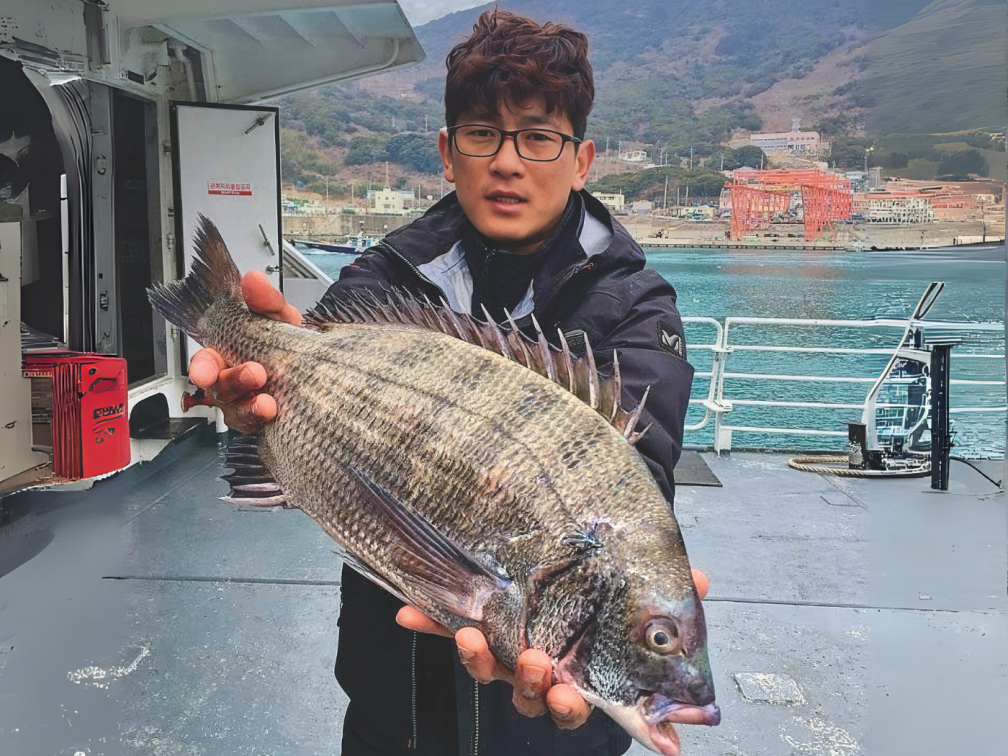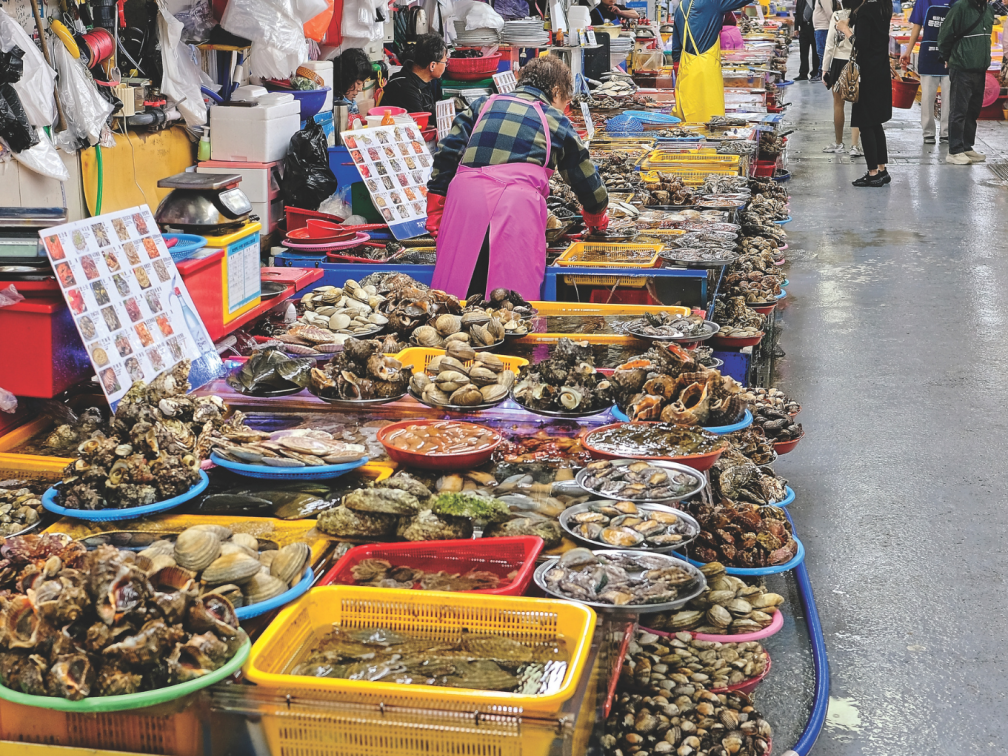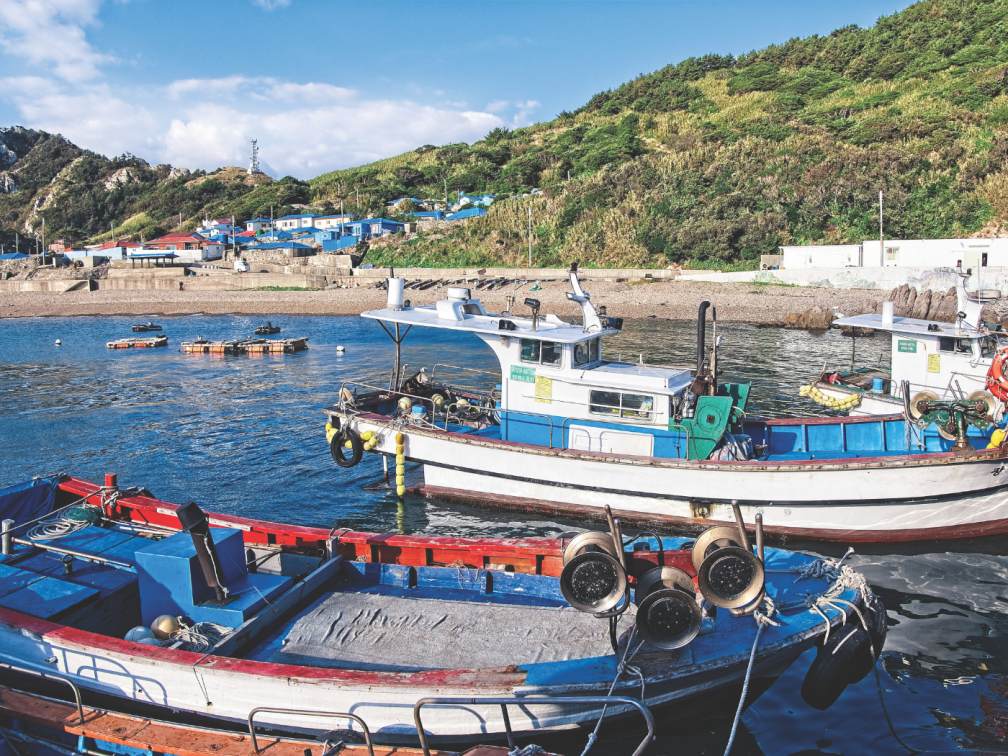After a day of fishing, anglers are often quick to offer reasons for their poor catch. So, when a keen fisherman friend from Mokpo told me that rising sea temperatures are seriously hurting fish stocks and making fishing harder, I was a bit dubious. Climate change is warming the seas, but could it really be having such a drastic impact on fish stocks? To find out, I looked into recent reports on fishing in South Korea. What I found not only confirmed my friend’s concerns but also painted a worrying picture for the future of fishing and the communities that rely on it.
Around the world, oceans are getting warmer, and climate change is the main cause. When we burn fossil fuels like oil, gas, and coal, we release greenhouse gases into the air. These gases trap heat from the sun, causing the Earth’s temperature to rise. What many people do not realise is that about 90% of this trapped heat does not stay in the air but ends up in the oceans. Which, in turn, slowly but surely raises ocean temperatures. For the Korean Peninsula, the rise in sea temperatures is even higher than the global average because of its geographic location.
Like many climate change issues, rising sea temperatures is often neglected or goes unnoticed. Since the ocean is still largely a mystery to most of us, it is easy to overlook just how serious and wide-reaching the effects can be, for both our planet and our daily lives. For local communities like many living in Mokpo, warming oceans mean lost jobs, smaller and less varied diets, and more dangerous working conditions for fishermen. And things are set to get even worse.

One clear example of these ripple effects is the growing number of fishing accidents. Rising sea temperatures are pushing fish species like mackerel and hairtail, both important parts of Korea’s diet and usually caught near the coast, into deeper, cooler waters because their old habitats have become too warm. This forces fishermen to go farther out, into deeper and more dangerous waters, often for longer periods. Sometimes they even risk ignoring storm warnings just to catch a few more fish. Sadly, in 2024, 118 fishermen from Korean fleets lost their lives at sea, a tragic number that is rising annually. It might sound strange, but climate change is linked to the rising number of fishing accidents off the Korean coast.
What is most worrying is how everything is connected when we think about the effects of warming seas. It is not just about hoping the ocean gets warm enough to dip our feet without them turning blue or to enjoy a swim without gasping for air. The reality is much more serious, and the consequences far-reaching. For island inhabitants, fishermen, and others who make their living from the sea like chandlers, seafood restaurateurs, and fishmongers, warming seas bring hardship and can even lead to the breakup of entire communities.
It would not be fair to focus only on how rising sea temperatures affect people living along the coast. In fact, the marine community suffers most from this warming. From tiny creatures like zooplankton to seaweed, fish, and large mammals like whales, all are directly impacted by the uncertainty caused by warmer oceans. For example, the distribution of anchovy, a key fish in Korea, has shifted, and their spawning patterns are changing. Seaweed growth has also been affected because it is very sensitive to water temperature. Just like on land, perhaps even more so, the marine community is interconnected; what affects one species has a knock-on effect on others. It is a case of all, both marine and human life, being in the same boat.

As people of faith, what do these changes in ocean temperature mean for us? Rising sea temperatures are more than just an environmental issue. For Christians, it touches something sacred. In the Bible, fish are symbols of nourishment and God’s care. When Jesus fed 5,000 people with just five loaves and two fish (Matthew 14:13–21), it was a powerful sign of God’s love. After his resurrection, Jesus helped his disciples haul in an incredible catch of fish (John 21:1–14). This showed his ongoing presence and generosity.
Today, warmer temperatures are disrupting the natural balance of ocean life. This affects both our environment and our spiritual tradition. The Bible calls believers to care for creation (Genesis 1:28). The decline of fish is a reminder of that responsibility. It is a challenge. Christians are called to care for the planet and to support coastal communities who depend on the sea for their daily nourishment and sense of purpose.
Caring for creation is an act of faith. By protecting the oceans, we honour God’s gifts and live out our role as caretakers of the Earth. We also protect something beautiful, not just a source of food, but of memories, peace, and wonder. As the legendary oceanographer Jacques Cousteau once said, “The sea, once it casts its spell, holds one in its net of wonder forever.”



